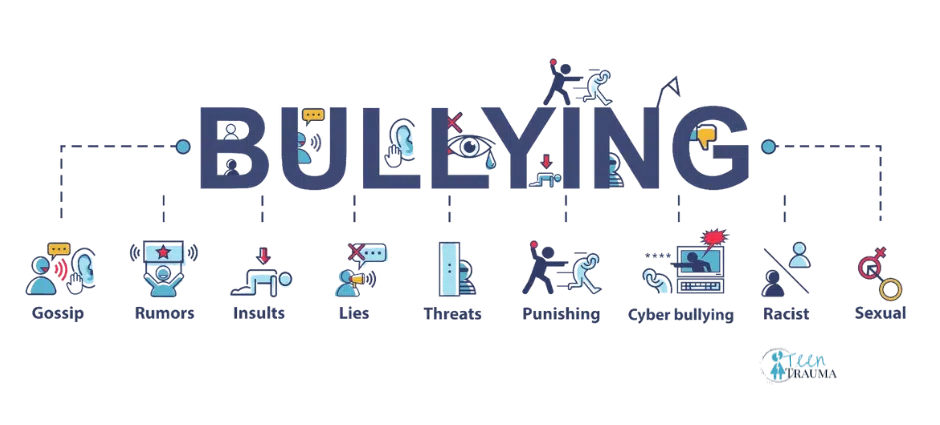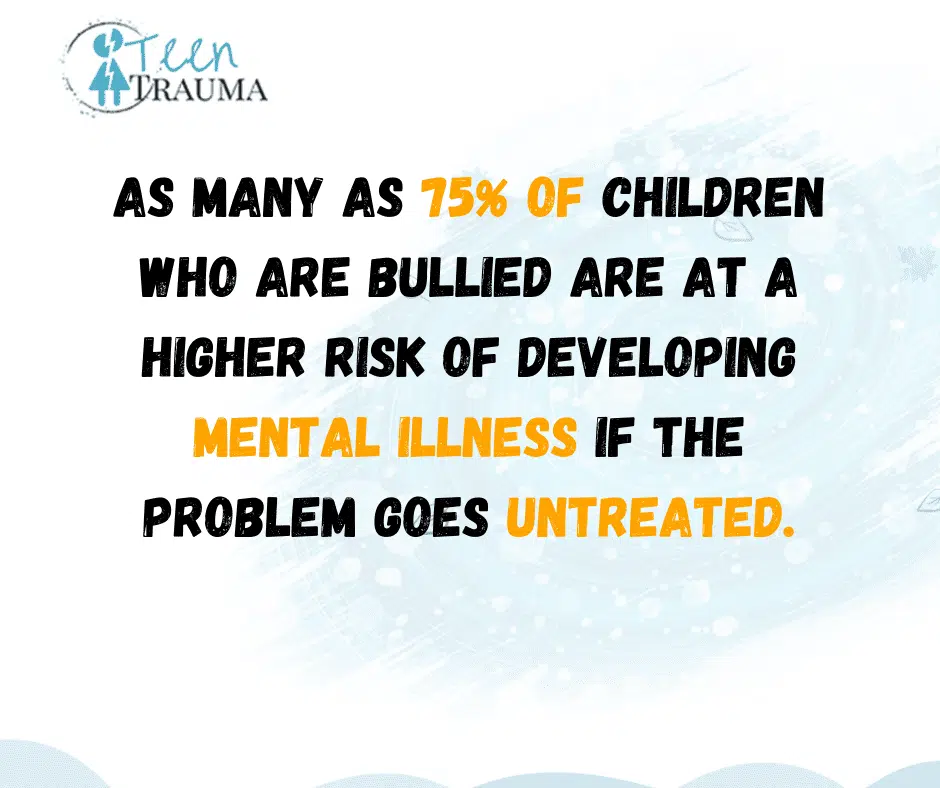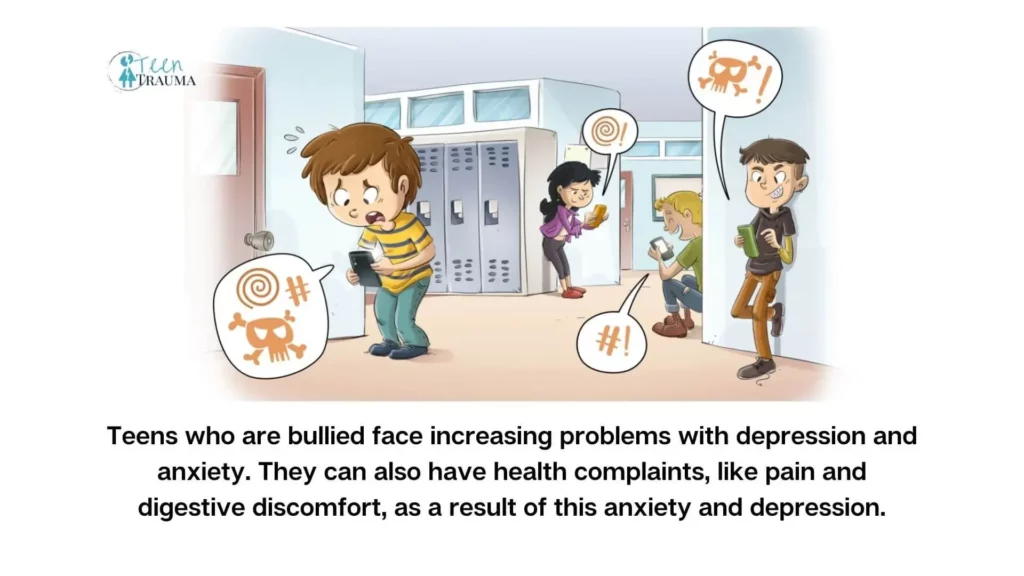Bullying Isn't Just Teasing - It Can Cause Lifelong Trauma
Bullying in school is a common problem, and sadly many parents assume there is little they can do to combat it, thinking of it as a rite of passage for their kids. The reality is that bullying has a traumatic effect on most students, leading to trauma when it is left unaddressed or when parents are unaware of the severity of the problem.
Here is a closer look at what bullying looks like in 2021, what can be done about it, and how parents can be more aware of the problem.
Bullying – A Hidden Crisis More Common Than You Think
The Centers for Disease Control defines bullying as containing three elements. This includes:
- Unwanted, aggressive behavior
- Power imbalance
- High likelihood of repeating these behaviors
Not all negative behavior is harassment, even when it is hurtful to your teenager, but if it contains these three elements, it is.
All teenagers are affected by bullying. They may be the bully, the victim, or an observer. As far as victims, about 20% of all students ages 12 through 18 experience bullying and 19% of high school students indicate they are bullied on school property.

Cyberbullying: 75% of Students Report Being Victims of Internet Bullying
The Internet has made bullying even easier. Instead of directly teasing a victim, a bully can simply ghost them online. Recently, the dangers of platforms like Instagram on the mental health of teen girls has come to light, and it’s not just the content, though that is a major problem.
It’s also the way teenagers use these apps, and sometimes that can be to bully others. Around 15% report of teens surveyed cited cyberbullying, which occurs during online interactions or text messages.
These numbers apply to bullying, specifically. More common is peer victimization, such as teasing. Almost three-quarters of students have reported peer victimization over the past school year in one survey of 13 to 18-year-old students.
This can be as simple as property damage to something more invasive like sexual harassment. Over half of the students surveyed indicated they had mean rumors or lies spread about them at school.
With bullying and victimization acts being so common in school and outside of school, the impact of these actions must be fully understood.
Almost three-quarters of students have reported peer victimization over the past school year in one survey of 13 to 18-year-old students
teentrauma.com Tweet
The Mental Health Effects of Bullying
Bullying has an impact on the mental health of those who are bullied. No matter the age, bullying creates:
- Sleeping problems
- Anxiety problems
- Digestive complaints
- Restlessness
- Difficulty concentrating
As many as 75% of children who are bullied are at a higher risk of developing mental illness if the problem goes untreated.
In severe cases of chronic bullying, the child may develop PTSD symptoms. This includes an intense desire to avoid situations where bullying may occur, persistent feelings of hypervigilance, and re-experiencing the event over and over.
Even if a bullying victim does not develop PTSD, they may experience signs of trauma. Without professional help, that trauma can create a lasting effect on the individual.

Could Your Child Be a Target? Bullying Risk Factors
Anyone can be bullied, but some kids are more at risk than others.
Children who are perceived as being different from their peers for any reason are at higher risk. Also, those who appear defenseless or weak, including children dealing with anxiety or depression symptoms.
Students who are not popular and who do not have many friends are often victims. Finally, a child who themselves is annoying or antagonistic may be at risk for bullying.
Bullying's Devastating Impact: How it Causes Acute, Chronic, and Complex Trauma
The trauma associated with bullying can be one of three types:
- Acute – This is occasional trauma that, while impactful, is fairly easy to overcome with professional mental health treatment. It tends to come from one traumatic, but not recurring, event.
- Chronic – Chronic trauma occurs when the traumatic event happens over and over. Bullying often triggers chronic trauma.
- Complex – Complex trauma occurs when repeated exposure to multiple types of trauma occurs. A child facing abuse at home who also faces bullying at school can develop complex trauma.
The effects of these different types of emotional trauma are far-reaching, and the best way to address them is with trauma-informed therapy. For chronic and complex trauma that is causing clear mental health concerns, residential treatment is quite helpful.
How Ignoring Bullying Makes it Worse
“Kids will be kids” and “all kids are mean sometimes, just ignore it” may be things well-meaning parents say to their kids, but the truth is, bullying has long-term psychological effects. Ignoring it is not the answer, especially if your child is suffering as a victim.
When a bully chooses a victim, they continue trying to show their power over that victim. Ignoring the behavior does not stop it. In fact, if the bully does not get the right reaction, they may escalate their behavior.
Beyond Just Words: The Long Term Effects of Bullying
Teens who are bullied face increasing problems with depression and anxiety. They can also have health complaints, like pain and digestive discomfort, as a result of this anxiety and depression.
Not only that, but bullying usually happens in and around the school. Increased bullying leads to decreased academic achievement. When a teenager is so focused on what is happening socially, they cannot focus on their studies. Bullied teens are also more likely to miss or skip school as a result of their treatment.
If the bullying behaviors continue to go unchecked, some students will turn to violent measures themselves. In the 1990s the country had 15 violent school shooting cases. All but three of those perpetrators were victims of bullying. Bullying is also linked to suicide risk.

The effects of bullying and the emotional trauma it produces are far-reaching. Without professional help, this anxiety and depression can follow the child into adulthood.
If your child is facing bullying at school, you need to act. Working with a trauma-informed therapist or placing your bullied child in a supportive residential environment is a great way to take help combat this trauma. Bullying is serious, but as a parent, you can help. Reach out to our professionals to learn more about your options to help your teenager overcome the real challenges that bullying creates.










